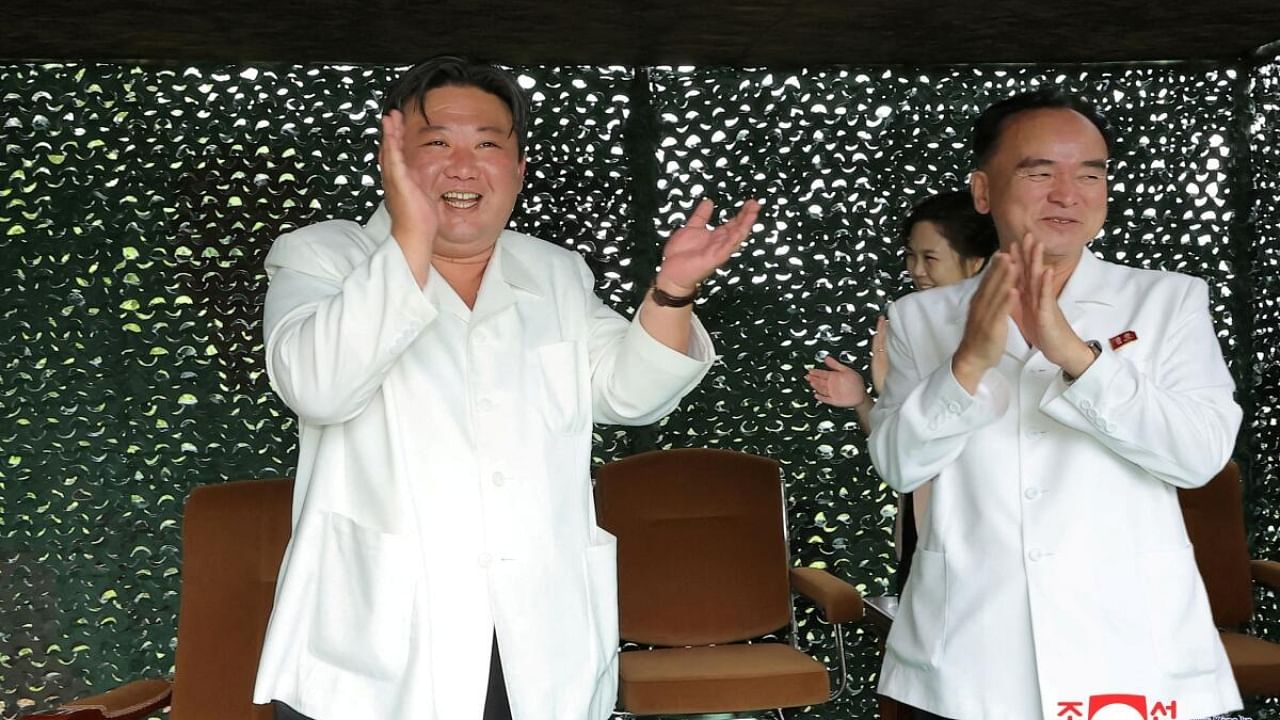
North Korean leader Kim Jong Un “personally guided” the launch of a new missile designed to strike the US and pledged more weapons tests were on the way if Washington didn’t back away from its “hostile policy,” state media reported.
North Korea’s test of the new Hwasong-18 intercontinental ballistic missile served as “a strong practical warning” to the US and South Korea to halt bringing US nuclear assets to the region, flying spy planes overhead and holding joint military exercises that are pushing the peninsula to the brink of war, the state’s official Korean Central News Agency reported Thursday.
“He reaffirmed that a series of stronger military offensive will be launched until the US imperialists and the south Korean puppet traitors admit their shameful defeat of their useless hostile policy toward the DPRK in despair and give up their policy,” KCNA cited Kim as saying, referring to the official name for his country while not using the formal name of its neighbor.
Fired from an area near Pyongyang on Wednesday, the intercontinental ballistic missile flew about 1,000 kilometers (620 miles) and reached an altitude of about 6,000 kms on a flight that lasted about 74 minutes, Japan’s Defense Ministry said. North Korea said the missile reached an altitude of 6,648.4 kms.
This would be the second test of the Hwasong-18 following a launch in April. The solid-fuel ICBM is easier to deploy and quicker to fire than North Korea’s arsenal of liquid-fuel rockets — whose tanks take time to fill and make them vulnerable to being shot on the pad before taking off.
The time it spent in the air was the longest tracked for a North Korean ICBM and its apogee exceeded the missile launched in April, according to Japanese officials. This indicates North Korea has increased the size of its solid-fuel ICBMs, which means they could carry a heavier nuclear payload to more parts of the world.
North Korea’s ICBMs are its most powerful missiles designed to deliver a nuclear warhead to the US mainland. The test came about a day after Kim Yo Jong, the influential sister of Kim Jong Un, was cited by Pyongyang’s state media as threatening retribution for flights of spy planes that Pyongyang claimed included flights that intruded on its airspace. South Korea dismissed the assertion as groundless.
Kim’s preteen daughter was not shown in the first batch of photos state media released on the launch. He has brought her to recent tests to show not only that there is another generation waiting in the wings of the family dynasty forged during the Cold War, but that it will rely on nuclear weapons for its survival.
“We strongly condemn the DPRK for its ICBM tests. At the same time, we will make clear, as we have for some time, that the door is open to diplomacy,” State Department spokesman Matthew Miller told reporters at a briefing on Wednesday.